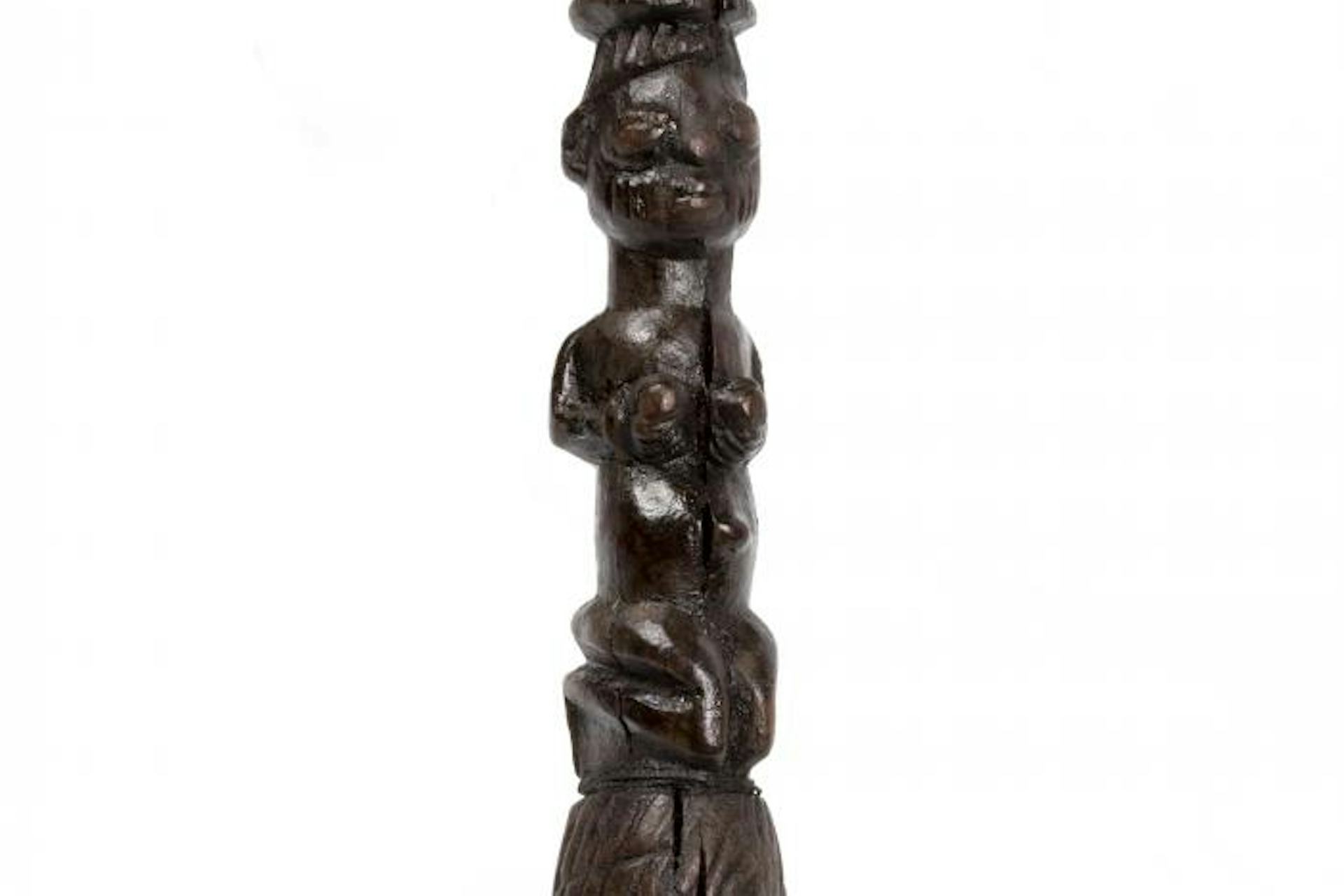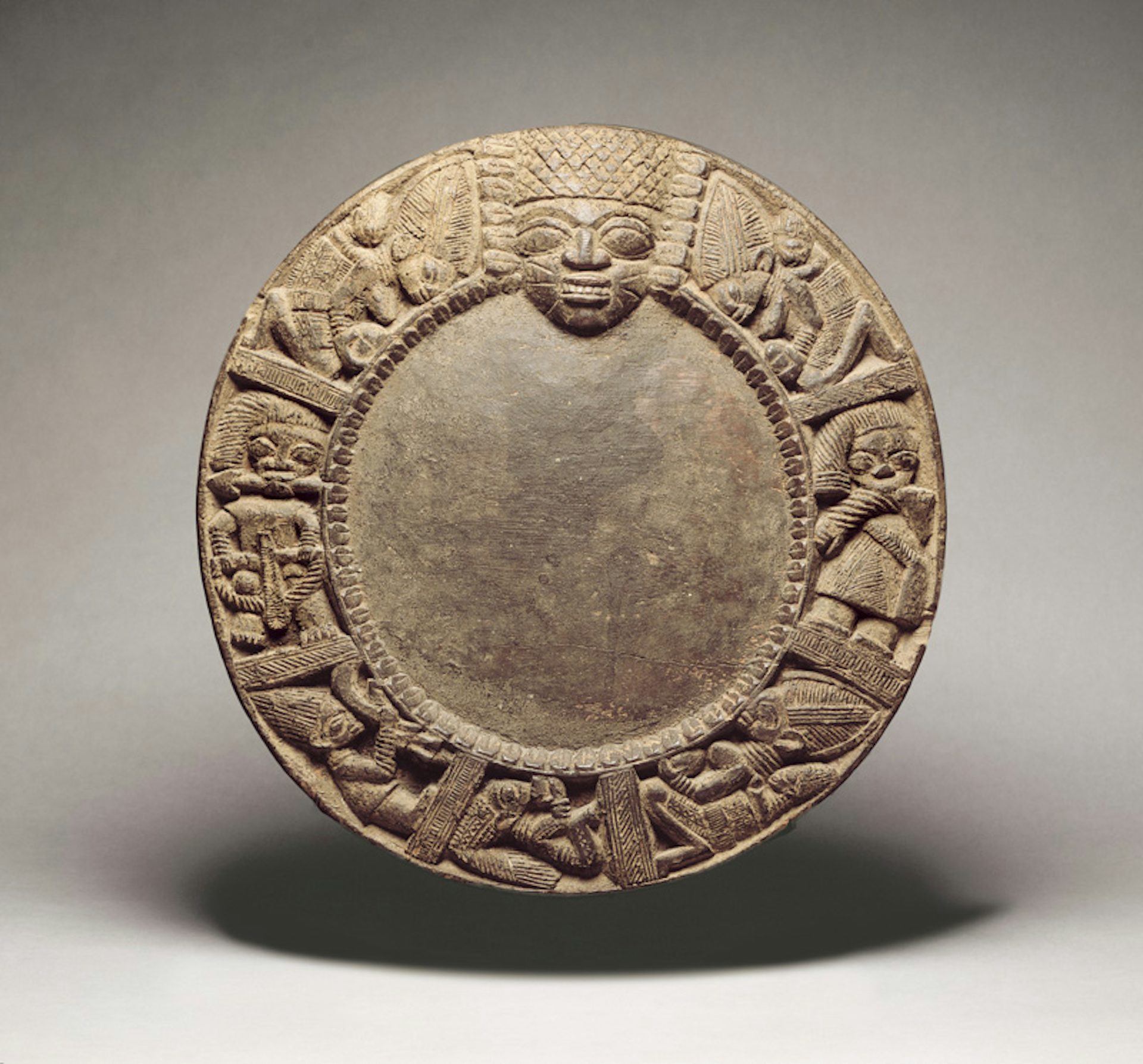Orunmila

Ifa diviners would tap on their divination trays with these wands while praising Orunmila. Yoruba artist (20th century).
Kruizenga Art MuseumCopyrightOverview
Orunmila—also known as Orunla or Ifa—is the Yoruba god of wisdom, knowledge, divination, and fate.[1] He is the first son of the sky god Olorun and serves as a messenger of the gods. He is also considered to be the first babalawo (oracle or diviner) of the Yoruba religion. Orunmila possesses the ability to predict future events and can speak to people on behalf of the oriṣas—the gods of the Yoruba pantheon.
Orunmila is one of the primordial gods of Yoruba mythology; he served as Obatala’s advisor in his mission to create the earth and humanity. After the creation of the world, Orunmila was able to move freely between heaven and earth and therefore became the messenger god. He would ask Olodumare and the other oriṣas for help on behalf of the people below. Because of this, he soon became humanity’s oracle: Ifa.
As Ifa, Orunmila is one of the most revered oriṣas, consulted on all important occasions.[2] He has a devout following in the Ifa religion. His priests, known as babalawos, act as oracles and impart the wisdom of Orunmila to those who seek it.[3] In addition to divination, Orunmila is also the god of fate and wisdom.
Pronunciation
English
Yoruba
Orunmila Ọ̀rúnmìlà Phonetic
IPA
aw-roo-mee-lah ɔ̀.ɾṹ.mĩ̀.là
Orunmila and Opele

An Ifa divination tray (opon ifa) would be used by a Babalawo (diviner) for divination. Yoruba artist (early 20th century).
New Orleans Museum of ArtCopyrightIn his capacity as the god of divination, Orunmila is aided by other lower-ranking oracles. One such figure is Opele, one of Orunmila’s servants (though in some contexts Opele is even referred to as a slave).[4] It is easier to consult Opele than to contact Orunmila directly.[5] Thus, Opele is usually consulted for everyday problems, while Orunmila is reserved for important occasions. Opele is represented by eight small wooden strips.
According to one account, Opele was originally Orunmila’s pupil. Orunmila taught him the secrets of the Ifa religion, but Opele wanted to surpass his teacher in this knowledge. He thus tried to deceive the god. Orunmila found out, and the two began to fight. In the end, Orunmila cursed Opele and turned him into sixteen pearls.
Orunmila took eight of these pearls in his hands and put the other eight in a bag. He then used the beads as part of the Ifa divination ritual, thus forcing his disciple to work for him forever. Babalawos now consult the eight Opele beads whenever they want advice from Orunmila.[6]